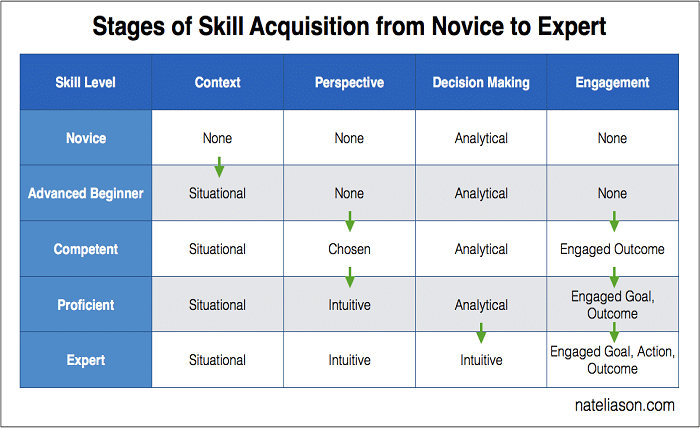Advancing Beyond Novice: What Comes After and How to Get There

Introduction
Reaching the end of the novice stage is a significant milestone in any field, whether it’s a hobby, a sport, or a professional skill. Understanding what comes after novice can help you set realistic goals and prepare for the next challenges. This post will explore the paths and opportunities available once you advance past the beginner level.
Skill Levels: From Novice to Mastery
Before diving into what comes after novice, it’s crucial to understand the various skill levels typically recognized in most fields. These often include beginner, intermediate, expert, and sometimes master or proficient. Each level comes with its own set of skills, challenges, and learning objectives.
The Transition from Novice to Intermediate
The first step after novice is often the intermediate level. This stage involves a deeper understanding and more refined skills than at the novice level. We’ll discuss how to recognize when you’re ready to move up and what you should focus on to ensure a smooth transition.
Key Skills to Develop Post-Novice
What comes after novice will require a new set of skills and knowledge. This section will outline the key areas to focus on once you leave the novice stage, tailored to various fields such as languages, sports, and professional skills like programming or marketing.
Overcoming Challenges in the Intermediate Stage
As you move beyond novice, the challenges become more complex. This part of the blog will address common obstacles faced at the intermediate level and provide strategies to overcome them, ensuring continuous improvement and growth.
Tools and Resources for Advanced Learning
Leveraging the right tools and resources is crucial for advancing beyond novice. This section will recommend books, online courses, workshops, and other resources tailored to help you grow from novice to intermediate and beyond.
Setting Goals: What Comes After Novice
Goal setting is vital once you progress past the novice stage. We’ll discuss how to set SMART goals that are specific, measurable, achievable, relevant, and time-bound, which will help you navigate the journey ahead more effectively.
Measuring Progress Beyond Novice
Tracking your progress is essential to understand how far you’ve come and what comes next. This section will explore different methods and tools to measure your advancement from novice to higher levels.
Case Studies: Success Stories After Novice
To inspire and illustrate what comes after novice, this part will share case studies of individuals who successfully moved beyond the novice level in various fields. Learn from their experiences and the steps they took to reach higher levels of proficiency.
Expert Insights: Tips from Those Who’ve Moved On
Hearing from those who have already advanced past the novice stage can provide valuable insights. This section will include tips and advice from experts in several fields on what to expect and how to prepare for life after novice.
Planning Your Path Forward
With a clear understanding of what comes after novice, it’s time to plan your path forward. This part will help you outline a roadmap for the next stages of your learning or professional development.
Staying Motivated After Novice
Maintaining motivation can be challenging as the excitement of being a beginner wears off and the reality of more complex challenges sets in. Here, we’ll offer strategies to keep your drive alive as you progress through more advanced stages.
Conclusion
In conclusion, understanding what comes after novice is crucial for anyone looking to advance in their field. By preparing for the challenges of intermediate levels, leveraging the right resources, and staying motivated, you can successfully navigate the path from novice to expertise.
FAQs
1.What comes after novice in most learning paths?
Typically, the intermediate level comes after novice, where learners consolidate their basic skills and begin tackling more complex challenges.
2.How do I know when I’m ready to move past novice?
Signs that you’re ready to move beyond novice include a solid understanding of basic concepts, decreased reliance on guidance, and readiness to handle more challenging tasks.
3.What are some common challenges after novice?
Common challenges include increased complexity of tasks, higher expectations for independence, and the need for deeper analytical skills.
4.Can I skip the intermediate stage after novice?
Skipping stages is not recommended as each level builds on the skills and knowledge acquired in the previous one, preparing you for the complexities of advanced levels.
5.How long does it typically take to move from novice to intermediate?
The time it takes can vary widely depending on the field, the individual’s dedication, the quality of instruction, and the time invested in practice.





